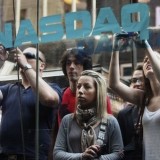If we can accept the scientific opinion that the primary ecosystems of our planet are seriously degraded — a United Nations’ report recently warned they are on the verge of collapse — then why have we been so slow to seriously address a problem that is rapidly approaching a condition deemed grave? One answer comes from Dr. Michael Sandel, a Harvard political philosophy professor, in his new book What Money Can’t Buy.
Dr. Sandel concludes that, “We have drifted from having a market economy to being a market society.” The business of business, it seems, has infected society. Everything is now for sale and everything has a dollar value. We have stopped asking, “What are your principles?” Instead we are asking, “What is your price.” Life has been commercialized and money has become the primary measure of worth.
Want a law that favours your interests? Hire a lobbyist. Want to repair your damaged corporate reputation? Employ a public relations firm. Want to meet a powerful politician? Pay the $1,500 political contribution to a party’s fundraising event. Want special medical treatment? Go to a private clinic. Want to attend a special sporting event? Pay the ticket scalpers their asking price. Want to sell a product? Buy advertising. Want to avert the consequences of committing a crime? Hire a skillful legal team. Want to skirt the moral obligation of paying taxes? Hire a tax lawyer. Want environmental concessions? Invest huge sums in industrial development. Need fulfillment? Go shopping. Even the academic world is being skewed in the direction of money as universities are pressured to pander to commercial interests and students are lured toward business degrees rather than liberal educations.
The complicated moral and ethical issues of our time are reduced to monetary values. The virtue quotient is replaced by the asset balance. Wisdom is displaced by financial smarts. Success is measured by money, a gauge that somehow bypasses the old indicators of merit. So those with the most money are venerated with the greatest social approval. The result is a moral paucity, a materialistic quest that is swelling the ranks of the rich and the poor while shrinking everything between.
The evidence of this trend has been mounting for decades but only recently have some corporate remunerations become obscene enough to define the situation with shocking clarity. In 2009, the CEOs of the Canada’s top 100 corporations earned an average of $6.6 million per year in salary and benefits — 3 hours of their pay took their employees 12 months of labour to earn. In 2010, these same CEOs earned an average of $8.4 million per year while their employees’ wages remained flat. In 2011, a year of record profits for big American corporations, their CEOs earned an average of $9.6 million — a typical US worker would need to labour 244 years to reach the same remuneration. Such amounts of money can only be used to gain even more power to make even more money.
These numbers are astounding for their effect as well as their amount. As humanity’s inherent intolerance for unfairness is violated, the result is a rise in crime, social breakdown and pervasive discontent. Devious profit-making schemes, exploitive investments and reckless banking practices have shaken the global financial system. Anxiety and insecurity are increasing in an age of apparent plenty.
Although these disquieting effects are important, they fall within the realm of human affairs and can be corrected with a change of mind and legislation. Much more worrisome, however, is the environmental damage caused by a culture that has evolved from a “market economy” to a “market society”. When the fundamental value system of a society is in sympathy with market values, it elects similarly inclined governments, the constraints on money’s destructive power relax even further, disturbances to nature accelerate and, ultimately, we victimize ourselves.
This is the trend that is making scientists, historians, philosophers and a rising number of economists uneasy. A society living by “market” values has internalized the economic rules that are external to nature’s inflexible and iimpassive principles. This partially explains why the warnings of environmental experts go unheeded and why conservation policies are so difficult to implement. If the public has become a “market society”, it is not inclined to provide political support for environmental initiatives, and reform is seriously handicapped. A collective ethos that worships at the altar of Mammon will not understand that some things are more important than money. The impending collision of the two conflicting systems could be messy.
Nature is essential to our well-being. Virtually everything we do is dependent on it. But its accounting system doesn’t understand ledgers, promises, intentions or risks. A ruined ecology cannot be legislated back to health. An extinct species cannot be reintegrated into the biological fabric of life. Weather changes caused by burning fossil fuels will take centuries to subside, even if we were capable of a radical and immediate reduction of greenhouse gases. An acidified ocean will take millennia to return to normal. A massive species extinction — exactly what we are causing today — takes evolutionary processes about 10 million years to repair. The logic of a “market society” doesn’t synchronize with the logic of nature.
So we know the answer to Dr. Sandel’s rhetorical question, What Money Can’t Buy. We also know the alternative. It’s carved into a stone in the ruins of ancient Rome — the old and silent Latin words of “Salve Lucrum”, roughly translated as “Hurray For Profit!”


The old saying “We know the price of everything and the value of nothing” is truer than ever.